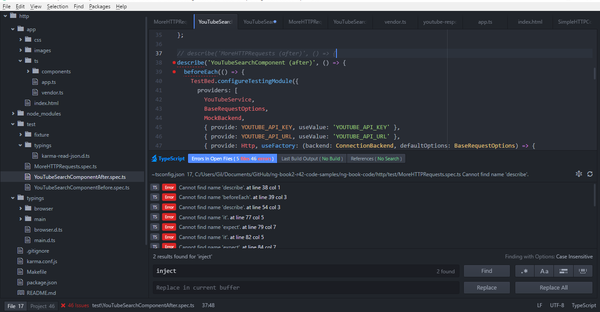

- #Angularjs ide for ubuntu install
- #Angularjs ide for ubuntu zip file
- #Angularjs ide for ubuntu update
Visit to see the Cloud9 IDE in your browser. Then you can start it with a different workspace: node c9sdk/server.js -w ~/my_workspace/
#Angularjs ide for ubuntu zip file
# (You can get a zip file instead of using git)Īfter the server starts successfully, you can stop it with Ctrl-C. Tar -zxf ~/node-v0.10.33-linux-圆4.tar.gzĮcho 'export PATH=$PATH:~/node-v0.10.33-linux-圆4/bin' > ~/.bashrcĭownload and setup Cloud9: # Setup and start Cloud9 server

#Angularjs ide for ubuntu install
Install node.js if you don't already have a recent version installed: # Install node.js
#Angularjs ide for ubuntu update
Install Git if you haven't already: sudo apt-get update & apt-get install build-essential The following instructions seem to work for me on a vanilla Ubuntu 14.04. Head over to their official website, to learn more.Cloud9's git repository and instructions have changed since the other answer was posted. $ ng serve -host 0.0.0.0 -port 8080ĪngularJS is extensive in functionality with support for Material UI and other nifty features that enrich your development experience. If you want, you can run the application on a specific port by adding -host and -port command-line options to the command as shown. Once started, you can access the application on port 4200 as shown. Switch to the directory of your newly created app and run it using the commands below. The above command will create a hello-world directory with all the needed files for an application.

In this case, we created an app called “ hello-linux”. $ ng versionĬheck AngularJS in Ubuntu Creating New AngularJS Application in UbuntuĬreating a test app will ensure that our installation is running on a designated local host port. Once the install process is concluded, use the command below to determine the installed version. Install NodeJS in Ubuntu Installing AngularJS in UbuntuĪfter installing Node.js on your system, use the following command to install the latest version of the AngularJS tool on your system. Once installed, you can install multiple or any specific Node.js version on your system using the nvm command as shown. To install the latest version of NVM using the following curl command. To install the latest version of Node.js on a Linux system, you need to install NVM ( Node Package Manager), which is a command-line tool for installing managing Node.js on a system. Let’s get started… Installing Node.js in Ubuntu


 0 kommentar(er)
0 kommentar(er)
